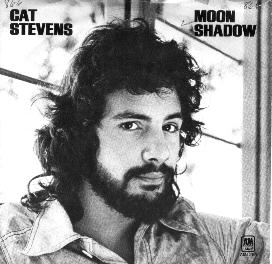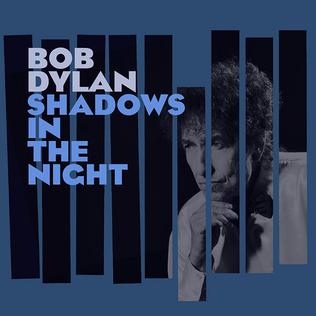Wilbur H. Jennings is an American songwriter, who is popularly known for writing the lyrics for "Tears in Heaven" by Eric Clapton and "My Heart Will Go On", the theme for the film Titanic. He has been inducted into the Songwriter's Hall of Fame and has won several awards including three Grammy Awards, two Golden Globe Awards, and two Academy Awards.

Harry Edward Nilsson III, usually credited as Nilsson, was an American singer-songwriter who achieved the peak of his commercial success in the early 1970s. His work is characterized by pioneering vocal overdub experiments, returns to the Great American Songbook, and fusions of Caribbean sounds. A tenor with a 3½ octave range, Nilsson was one of the few major pop-rock recording artists of his era to achieve significant commercial success without ever performing major public concerts or undertaking regular tours. The craft of his songs and the defiant attitude he projected remains a touchstone for later generations of indie rock musicians.
Paul Francis Webster was an American lyricist who won three Academy Awards for Best Original Song and was nominated sixteen times for the award.
A shadow is a region of darkness where light is blocked.

Barry Mann is an American songwriter, and part of a successful songwriting partnership with his wife, Cynthia Weil.

David Lynn Selby is an American film, television and stage actor. He is best known for playing Quentin Collins in the daytime soap opera Dark Shadows (1968–71), and Richard Channing in the prime-time soap opera Falcon Crest (1982–90). Selby also had prominent roles in the television series Flamingo Road (1981–82), and the feature film Raise the Titanic (1980). Also a published writer, Selby has written several books including novels, memoirs, and collections of poetry.

"Moonlight Shadow" is a song written and performed by English multi-instrumentalist Mike Oldfield, released as a single in May 1983 by Virgin Records, and included in the album Crises of the same year. The vocals were performed by Scottish vocalist Maggie Reilly, who had collaborated with Mike Oldfield since 1980. It is Oldfield's most successful single, reaching number one on a number of charts around Europe.
"Cavatina" is a 1970 classical guitar piece by British composer Stanley Myers written for the film The Walking Stick (1970), and popularised as the theme from The Deer Hunter some eight years later. As the Italian diminutive of cavata, cavatina is a musical term frequently applied to any simple, melodious air.
"Five to One" is a song by American rock band the Doors, from their 1968 album Waiting for the Sun.

"Night Fever" is a song written and performed by the Bee Gees. It first appeared on the soundtrack to Saturday Night Fever on RSO Records. Producer Robert Stigwood wanted to call the film Saturday Night, but singer Robin Gibb expressed hesitation at the title. Stigwood liked the title Night Fever but was wary of marketing a movie with that name. The song bounded up the Billboard charts while the Bee Gees two previous hits from Saturday Night Fever soundtrack were still in the top ten. The record debuted on the Billboard Magazine Hot 100 Chart at #76, then leaped up 44 positions to #32. It then moved: 32-17-8-5-2-1. It remained at #1 for eight weeks, and ultimately spent 13 weeks in the top 10. For the first five weeks that "Night Fever" was at #1, "Stayin' Alive" was at #2. Also, for one week in March, Bee Gees related songs held five of the top positions on the Hot 100 chart, and more impressively, four of the top five position, with "Night Fever" at the top of the list. The B-side of "Night Fever" was a live version of "Down the Road" taken from the Bee Gees 1977 album, Here at Last... Bee Gees... Live.

"You Can't Do That" is a song written by John Lennon and released by the English rock band the Beatles as the B-side of their sixth British single "Can't Buy Me Love". It was later released on their third UK album A Hard Day's Night (1964).
Thomas Ross "Tom" Whitlock is an American songwriter and musician, best known for his Academy Award-and Golden Globe-winning song "Take My Breath Away, "from the film Top Gun, which he co-wrote with Giorgio Moroder.

"Moonshadow" is a song written and performed by Cat Stevens, first released in the UK in 1970 as a single and 1971 on his album Teaser and the Firecat in the USA.
"The Shadow of Your Smile", also known as "Love Theme from The Sandpiper", is a popular song. The music was written by Johnny Mandel with the lyrics written by Paul Francis Webster. The song was introduced in the 1965 film The Sandpiper, with a trumpet solo by Jack Sheldon and later became a minor hit for Tony Bennett. It won the Grammy Award for Song of the Year and the Academy Award for Best Original Song. In 2004 the song finished at #77 in AFI's 100 Years...100 Songs poll of the top tunes in American cinema.

"Shadow Dancing" is a disco song performed by English singer-songwriter Andy Gibb that reached number one for seven weeks on the Billboard Hot 100 in 1978. Albhy Galuten arranged the song with Barry Gibb. While Andy Gibb would have three more Top 10 hits in the U.S., this would be his final chart-topping hit in America. The song became a platinum record.

Home Alone is the soundtrack of the 1990 film of the same name. The score was composed by John Williams and nominated for the Academy Award for Best Original Score; the film's signature tune "Somewhere in My Memory" was nominated for the Academy Award for Best Original Song and the Grammy Award for Best Song Written for Visual Media.

Dark Shadows is a 2012 American horror comedy film based on the gothic television soap opera of the same name. It was directed by Tim Burton and stars Johnny Depp, Michelle Pfeiffer, Helena Bonham Carter, Eva Green, Jackie Earle Haley, Jonny Lee Miller, Chloë Grace Moretz, and Bella Heathcote in a dual role. The film had a limited release on May 10, 2012, and was officially released the following day in the United States.

George Lewis Jr., better known by his stage name Twin Shadow, is a Dominican-American singer, songwriter, record producer, and actor based out of Los Angeles, California. He has written a novel, scripted TV series and released four albums: Forget (2010), Confess (2012), Eclipse (2015), and Caer (2018).

What We Do in the Shadows is a 2014 New Zealand mockumentary horror comedy film written, directed by, and starring Jemaine Clement and Taika Waititi. The screenplay concerns a group of vampires who live together in Wellington. It premiered at the Sundance Film Festival in January 2014. The film was theatrically released on 18 August 2014 by Madman Entertainment. The film earned $6.9 million on a $1.6 million budget.

Shadows of the Night is a 1928 American silent drama film directed by D. Ross Lederman and written by Robert E. Hopkins and D. Ross Lederman. The film stars Flash the Dog, Lawrence Gray, Louise Lorraine, Warner Richmond, and Tom Dugan. It was released on October 26, 1928, by Metro-Goldwyn-Mayer.

















